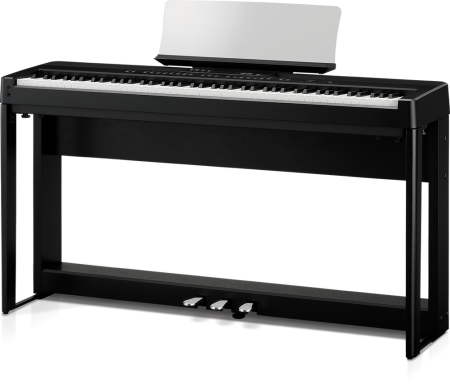When it comes to digital pianos, there has been a long-standing debate about whether they require tuning or not. As experts in the field of musical instruments and technology, we are here to provide you with a comprehensive and detailed analysis of this topic, dispelling myths and shedding light on the truth. If you’re curious about the intricacies of digital pianos, their maintenance, and whether tuning is necessary, read on to find out everything you need to know.
Understanding Digital Pianos: A Technological Marvel
Digital pianos have revolutionized the music industry, providing aspiring musicians and seasoned professionals alike with a versatile and convenient instrument. Unlike traditional acoustic pianos, which rely on strings and hammers, digital pianos utilize cutting-edge technology to produce sound. They incorporate digital samples of acoustic piano sounds and often come with a plethora of additional features, such as various instrument sounds, recording capabilities, and connectivity options.
The Tuning Dilemma: Acoustic vs. Digital Pianos
One of the primary factors that differentiate acoustic pianos from digital ones is tuning. Traditional pianos require regular tuning by a professional technician to maintain their optimal sound quality. Changes in temperature and humidity can affect the tension of the piano strings, leading to the need for adjustments to keep the instrument in tune.
However, when it comes to digital pianos, the story is entirely different. Digital pianos do not rely on strings or tuning pins to produce sound, so they technically do not go out of tune. The sound in a digital piano is generated through electronic processes, and the notes remain consistent over time. This means that once you purchase a digital piano, you won’t have to worry about tuning it regularly.
Factors Affecting Sound Quality in Digital Pianos
While digital pianos do not require traditional tuning, it’s essential to understand that their sound quality can be influenced by other factors. The most crucial element here is the quality of the digital samples used in the piano’s sound engine. High-end digital pianos often utilize samples recorded from premium acoustic grand pianos, resulting in a more authentic and expressive sound.
Additionally, factors such as the piano’s speakers or headphones used to amplify the sound can impact the overall sonic experience. Investing in high-quality speakers or headphones can significantly enhance the sound output, making your digital piano playing experience more enjoyable and immersive.
Regular Maintenance for Optimal Performance
Although digital pianos don’t require tuning, they still need regular maintenance to ensure they function correctly and deliver the best performance. Here are some essential maintenance tips to keep your digital piano in top-notch condition:
1. Cleaning and Dusting
Regularly clean the keyboard and the piano’s body using a soft, lint-free cloth. Dust particles can accumulate on the keys and between the buttons, affecting their responsiveness.
2. Protect from Moisture and Extreme Temperatures
Keep your digital piano away from direct sunlight, moisture, and extreme temperatures. Exposure to these elements can damage the internal components and affect the longevity of the instrument.
3. Firmware Updates
Manufacturers often release firmware updates for their digital pianos to improve performance and fix bugs. Regularly check for updates and install them to ensure optimal functionality.
4. Professional Servicing
While digital pianos are generally low-maintenance instruments, if you encounter any technical issues or irregularities in sound, it’s best to consult a professional technician for servicing and repairs.
Advantages of Digital Pianos over Acoustic Pianos
Digital pianos offer numerous advantages over their acoustic counterparts, making them an increasingly popular choice among musicians:
1. Portability
Digital pianos are lightweight and portable, allowing you to take them to gigs, rehearsals, or even when you move homes. Acoustic pianos, on the other hand, are bulky and challenging to transport.
2. Versatility
With digital pianos, you can experiment with various instrument sounds, from classic grand pianos to electric keyboards and even orchestral instruments. This versatility opens up endless possibilities for creativity and musical exploration.
3. Headphone Connectivity
Digital pianos often come with headphone jacks, enabling you to practice silently without disturbing others. This feature is particularly beneficial for late-night or apartment living.
4. Recording and Integration
Many digital pianos have recording functionalities, allowing you to capture your performances and compositions. Additionally, they can be easily connected to computers or other devices for further editing and integration into digital audio workstations (DAWs).
Conclusion
In conclusion, the debate about whether a digital piano needs tuning is unequivocally settled. Digital pianos do not require traditional tuning like acoustic pianos due to their technological design. However, while they eliminate the hassle of regular tuning, digital pianos still require maintenance and care to ensure they function optimally and produce high-quality sound.
If you’re considering investing in a digital piano, be sure to choose a reputable brand that offers top-notch sound samples and features. Remember, the sound quality of your digital piano can greatly impact your musical journey.
So, whether you’re a seasoned musician or a passionate beginner, digital pianos provide an excellent platform to explore and express your musical talent. Embrace the technological marvel and versatility of digital pianos, and let your creativity soar to new heights.





